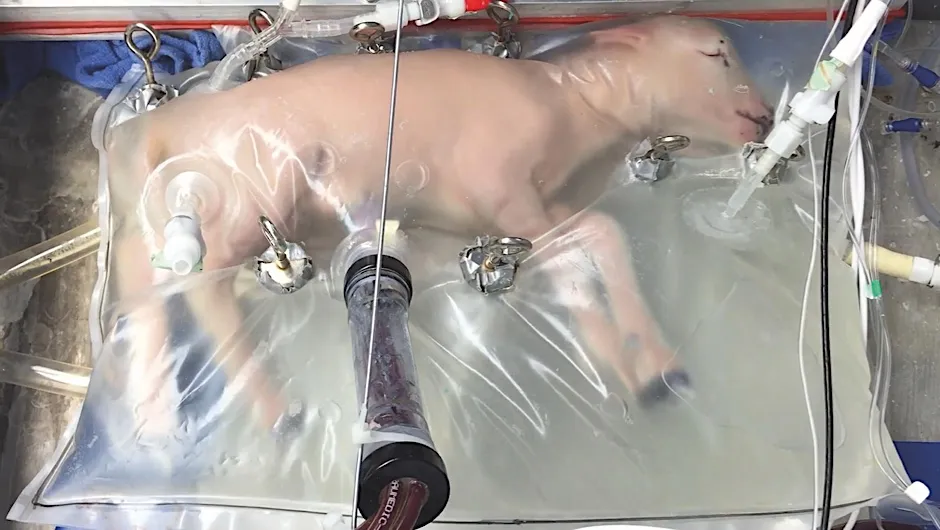Why might we need artificial wombs?
Researchers hope that artificial wombs will increase the survival chances of extremely premature babies, allowing the babies to develop as if they’re still inside the mother.
In 2017, paediatric surgeons at the Children’s Hospital of Philadelphia in the US revealed a new technique that involves suspending the foetus in a ‘biobag’ full of synthesised amniotic fluid. They’ve so far tested the device on premature lambs, attaching the animal’s umbilical cord to a gas exchange machine outside the bag that keeps the blood topped up with oxygen and nutrients.
Some of the lambs were kept alive up to birth weight, so if the team can make this technology safer, they may be able to adapt it to save human babies.

What does a baby get from the mother?
Millions of years of evolution have made mammalian pregnancy an extraordinarily complex and well-honed system. The mother and foetus are intimately connected via the placenta – an organ that is grown by the foetus into the mother’s womb lining.
Oxygen, nutrients and a cocktail of hormones pass from the mother into the baby via the placenta, stimulating and maintaining the pregnancy as the baby develops.
Meanwhile, the baby passes carbon dioxide and other waste products back into the mother’s bloodstream. The mother’s body heat is also important to the baby’s development. An artificial womb would need to replicate all of this.
What are the biggest barriers to artificial wombs?
Probably the least understood stage of pregnancy – and one of the most delicate – is around 10 days after fertilisation, when the developing egg implants into the uterus and starts to grow.
Researchers are now experimenting with maintaining uterus cells outside of the body, which in future could be supported in an artificial womb and provide a place for the embryo to implant. This uterus tissue would need to have its own blood supply – something that’s not yet been achieved. Scientists believe that tackling this issue would be a major step towards artificial wombs.
Rory Galloway is the producer of Can We Make An Artificial Womb? – an episode of CrowdScience that can be streamed at bbcworldservice.com/crowdscience
Subscribe to BBC Focus magazine for fascinating new Q&As every month and follow @sciencefocusQA on Twitter for your daily dose of fun facts.